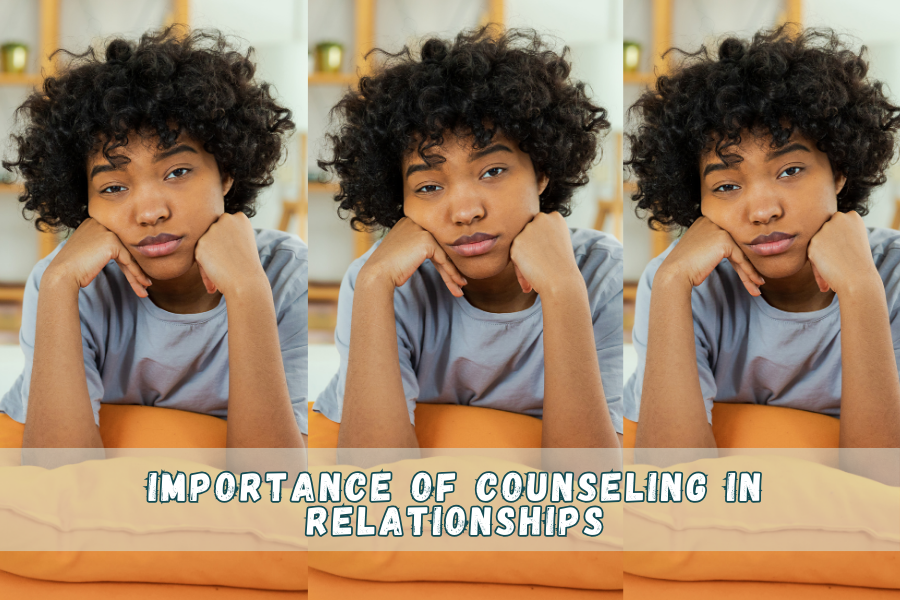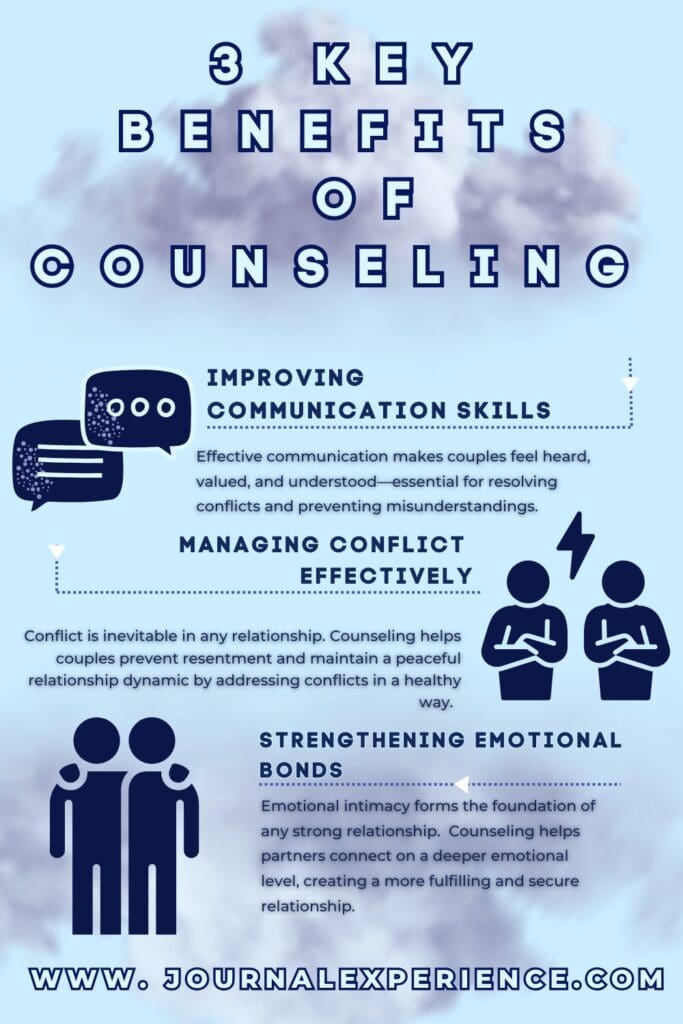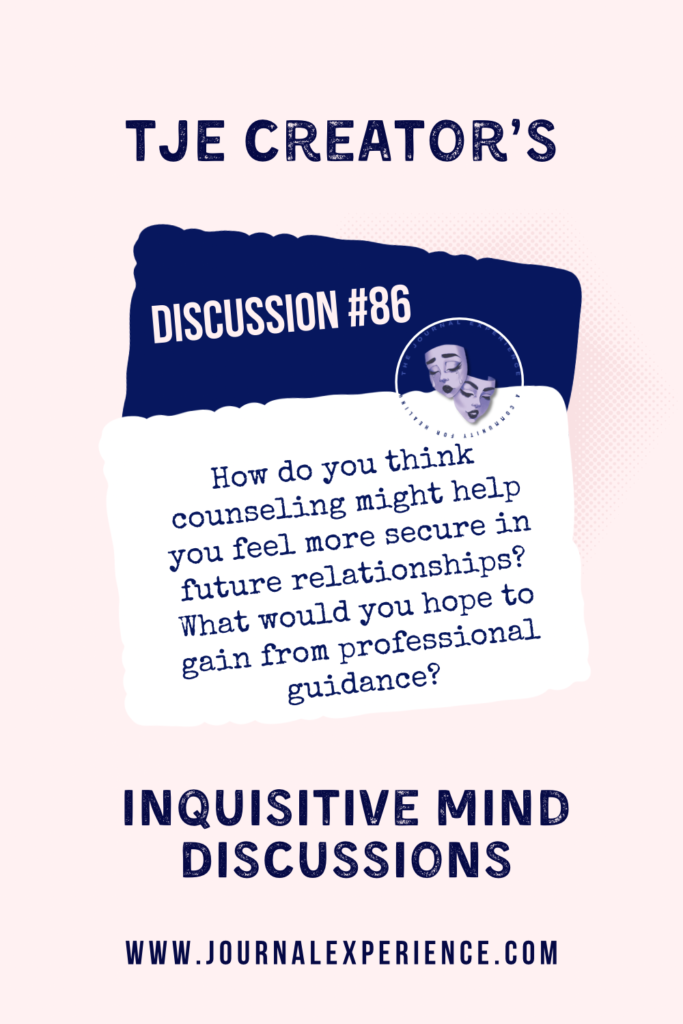Counseling can play a crucial role in relationship health by improving communication, managing conflicts, and strengthening emotional bonds. Relationships can be challenging, especially when communication breaks down, conflicts arise, or emotional intimacy is lacking.

Couples often struggle to navigate these obstacles on their own, which is where professional counseling comes in. This post explores the importance of counseling in relationships and how it can provide couples with the tools necessary to nurture healthier, more resilient relationships. By offering a safe space for couples to discuss their issues, counseling can pave the way for stronger, more fulfilling connections.
What is Relationship Counseling?
Before diving into the benefits of relationship counseling, it’s important to understand what it entails. Relationship counseling is a therapeutic process where a trained professional helps couples address challenges within their relationship. This section will give you a brief overview of relationship counseling and its foundational goals.
- Definition:
Relationship counseling (couples therapy) is a therapeutic process where a trained therapist helps couples address issues in their relationship. - Goals of Counseling:
- Improve communication
- Resolve conflicts
- Build emotional intimacy
- Provide a neutral space for open dialogue
By fostering mutual respect, understanding, and empathy, counseling lays the foundation for lasting changes in a relationship.
Not sure where to begin?
The FREE Masterclass (EVERGREEN version) by the Center for Thriving Relationships is a powerful first step for couples wanting to explore healing, growth, and more connected love.

Key Benefits of Counseling
Counseling offers a wide range of benefits that can transform relationships. From improving communication to deepening emotional bonds, couples therapy helps partners create healthier and more resilient relationships. Let’s explore some of the key benefits of counseling that can help couples thrive.
1. Improving Communication Skills
Effective communication is the cornerstone of any successful relationship. Unfortunately, communication challenges are common in relationships, often leading to misunderstandings and conflict. This section explains how counseling can help couples improve communication skills to ensure both partners feel heard, respected, and understood.
- Why Communication Matters:
Poor communication is a leading cause of conflict in relationships. Counseling helps couples:- Learn active listening: Giving full attention and responding thoughtfully
- Express emotions clearly: Using “I” statements instead of “You” statements to avoid defensiveness
- Address emotional barriers: Teaching partners to communicate even when emotions run high
Key Takeaways: Effective communication makes couples feel heard, valued, and understood—essential for resolving conflicts and preventing misunderstandings.
Looking to turn communication breakdowns into breakthroughs?
The Thrive in Love Online Course gives couples a complete road map to understanding each other’s communication styles and cultivating safety in every conversation.
2. Managing Conflict Effectively
Conflict is inevitable in any relationship. However, the way a couple handles conflict can either strengthen or strain their connection. Counseling offers couples the tools and techniques to resolve conflicts in a healthy and constructive manner. This section will delve into how counseling helps couples manage disputes without escalating tensions.
- Conflict is Natural:
Disagreements happen in every relationship. The key is to manage them constructively. Counseling offers tools to:- Identify root causes of conflict
- De-escalate arguments: Taking breaks to cool off
- Use compromise: Finding common ground that benefits both partners
Why It Matters: Counseling helps couples prevent resentment and maintain a peaceful relationship dynamic by addressing conflicts in a healthy way.
3. Strengthening Emotional Bonds
Emotional intimacy forms the foundation of any strong relationship. While emotional connection may fade over time due to external pressures, counseling provides couples with the necessary tools to strengthen and rebuild this bond. In this section, we explore how counseling helps partners nurture vulnerability and trust to deepen their emotional connection.
- Building Trust and Vulnerability:
Emotional intimacy is the heart of any relationship. Counseling helps couples:
- Express love and appreciation in ways that resonate
- Work through past trauma and unresolved issues
- Prioritize emotional connection despite external stressors
Key Takeaway: Counseling helps partners connect on a deeper emotional level, creating a more fulfilling and secure relationship.
Ready to reignite your emotional connection in a supportive space?
The Thrive in Love Weekend Couples Retreat (in person) is a trans-formative experience that helps couples rediscover closeness and heal from emotional distance.

How Counseling Helps Strengthen Relationships
While counseling offers specific tools to improve communication, conflict management, and emotional bonding, it also contributes to long-term relationship strength. This section examines the broader impact counseling can have on a couple’s overall connection, providing the foundation for growth and lasting change.
1. Understanding Each Other Better
One of the primary benefits of counseling is that it allows partners to better understand each other. By exploring emotions, triggers, and communication patterns, couples gain insight into each other’s needs and behaviors. This leads to more empathetic responses and mutual understanding.

- Counseling helps couples gain clarity about their partner’s feelings, thoughts, and behaviors, leading to a better understanding of each other’s perspectives.
2. Enhancing Emotional Healing
I
For many couples, past traumas or unresolved emotional issues can impact the present relationship. Counseling provides a safe space for partners to heal from past wounds, fostering a more secure emotional foundation. This section explains how counseling helps emotional healing, allowing couples to move forward together.
- Counseling offers a safe space to work through past traumas and emotional barriers, helping partners heal and move forward together.
Need guidance working through past hurts together?
The 3 Day Thriving Relationship Workshop offers hands-on tools for processing pain and reconnecting in a loving, forward-moving way.
3. Developing Healthy Relationship Habits
The skills and tools learned in counseling don’t just resolve current issues—they also serve couples in the long term. Counseling helps couples develop habits that promote healthy communication, conflict resolution, and emotional support throughout their relationship journey. This section highlights how counseling instills lasting positive habits.
- Couples learn to use healthy conflict resolution techniques and emotional expression strategies, which can last long after counseling ends.
Why Couples Should Consider Counseling
If you’re wondering whether counseling is right for your relationship, consider the many ways it can strengthen your connection. Counseling can help you address issues that may feel too complex or overwhelming to tackle alone. From improving communication to creating a deeper emotional bond, counseling provides the tools to overcome obstacles and enhance your relationship in ways that can lead to lasting growth. It’s a valuable resource for couples who want to build a stronger, healthier connection, whether you’re experiencing difficulties or just seeking to deepen your bond. Let’s take a closer look at why counseling is worth considering for anyone in a partnership.
Strengthening Communication
Communication is the cornerstone of any successful relationship. Without open, honest dialogue, misunderstandings and unresolved issues can quickly escalate into bigger problems. Counseling provides couples with the opportunity to improve their communication by teaching techniques like:
- Active listening: Ensures that both partners feel heard and understood.
- Non-defensive speaking: Encourages calm, respectful dialogue, even when emotions run high.
- Expressing emotions without blame: Helps prevent conversations from turning into arguments.
Couples learn how to approach sensitive topics with empathy and understanding, making it easier to express needs, desires, and concerns in a way that fosters positive outcomes. By learning these skills, couples can break down communication barriers, reduce misunderstandings, and ensure that both partners feel heard, respected, and supported.
Effective communication doesn’t just resolve conflicts—it helps prevent them. When couples learn to speak openly and listen actively, they can address minor issues before they snowball into larger disagreements. Counseling also guides couples through difficult conversations, like discussing future goals or addressing past hurts, with the necessary tools to navigate these challenges constructively. This strengthened communication foundation helps partners feel more emotionally connected, making them more equipped to face challenges together as a team.
Preventing Resentment
Resentment can slowly build up in a relationship when issues are left unaddressed or swept under the rug. Over time, unresolved conflicts can breed bitterness, leading to emotional distance and a weakening of the relationship. Counseling helps couples address underlying issues that might be contributing to feelings of resentment, providing a safe space to discuss concerns and frustrations. Instead of letting negative emotions fester, couples can work through them in a healthy, productive manner.
In counseling, couples learn how to:
- Identify the root causes of resentment: Understanding what’s really at the heart of the issue.
- Express their feelings without accusations: Sharing emotions honestly, while being respectful.
- Work toward resolution: Collaborating to find solutions rather than placing blame.
By addressing conflicts early on and developing the skills to manage future disagreements, counseling can help prevent resentment from taking hold. This proactive approach allows couples to create a relationship dynamic where both partners feel validated and understood, which can help them avoid unnecessary tension and improve long-term satisfaction in their connection.
Building Emotional Closeness
A strong emotional bond is the foundation of a healthy, thriving relationship. Emotional intimacy deepens the connection between partners, creating a sense of trust, safety, and affection. However, many couples experience emotional distance as time passes, especially when life’s demands and external stresses take priority. Counseling offers the opportunity to rebuild and strengthen emotional closeness by providing couples with the tools to communicate their feelings openly and vulnerably.
In therapy, couples can:
- Explore past emotional wounds: Address unresolved issues that might be hindering intimacy.
- Work through unresolved trauma: Heal from past hurts that may impact the current relationship.
- Gain a better understanding of each other’s emotional needs: Build empathy and compassion.
This healing process creates an environment where vulnerability is encouraged, and emotional intimacy is nurtured. Counseling also promotes empathy, as partners learn to respond with compassion to each other’s emotions, fostering a deeper sense of closeness. The emotional connection built in counseling can create a lasting foundation for mutual love, respect, and trust, allowing couples to enjoy a more fulfilling and resilient partnership.
Providing Long-Term Benefits
While the immediate benefits of counseling are clear, the skills learned in therapy can serve couples long after the sessions end. Couples who participate in counseling walk away with a toolbox of communication strategies, conflict resolution techniques, and emotional support practices that they can apply throughout their relationship. These tools provide couples with the ability to handle future challenges with greater ease and confidence.
For example, couples can continue to use:
- Active listening skills: To ensure both partners feel heard in future discussions.
- Healthy conflict resolution methods: To handle new disagreements calmly and productively.
- Emotional support practices: To maintain closeness even during difficult times.
The emotional healing that takes place in counseling also provides long-lasting benefits, as partners learn how to navigate future challenges with resilience and understanding. Counseling fosters a mindset of growth and collaboration, giving couples the foundation they need to create a lasting, supportive partnership that can weather life’s ups and downs.
Overview:
Counseling can be trans-formative for relationships, helping couples navigate challenges and grow closer. By improving communication, managing conflicts, and strengthening emotional bonds, counseling plays an essential role in maintaining a healthy relationship. If you are looking to enhance the quality of your relationship, consider counseling as a valuable resource. The tools and strategies provided in counseling can help you and your partner build a stronger, more resilient connection.
We recommend exploring the programs from the Center for Thriving Relationships to deepen your journey. These offerings help couples not only survive their challenges—but thrive through them.
If you haven’t already, join The Journal Experience community or subscribe to TJE Newsletter and take the first step toward improving your relationship. Let us support you in navigating the journey of healing and growth together!